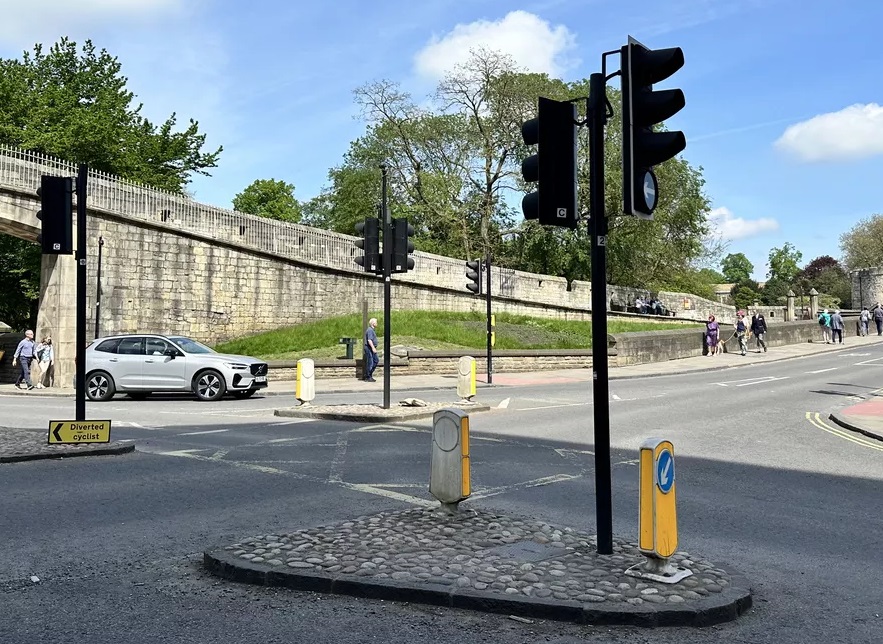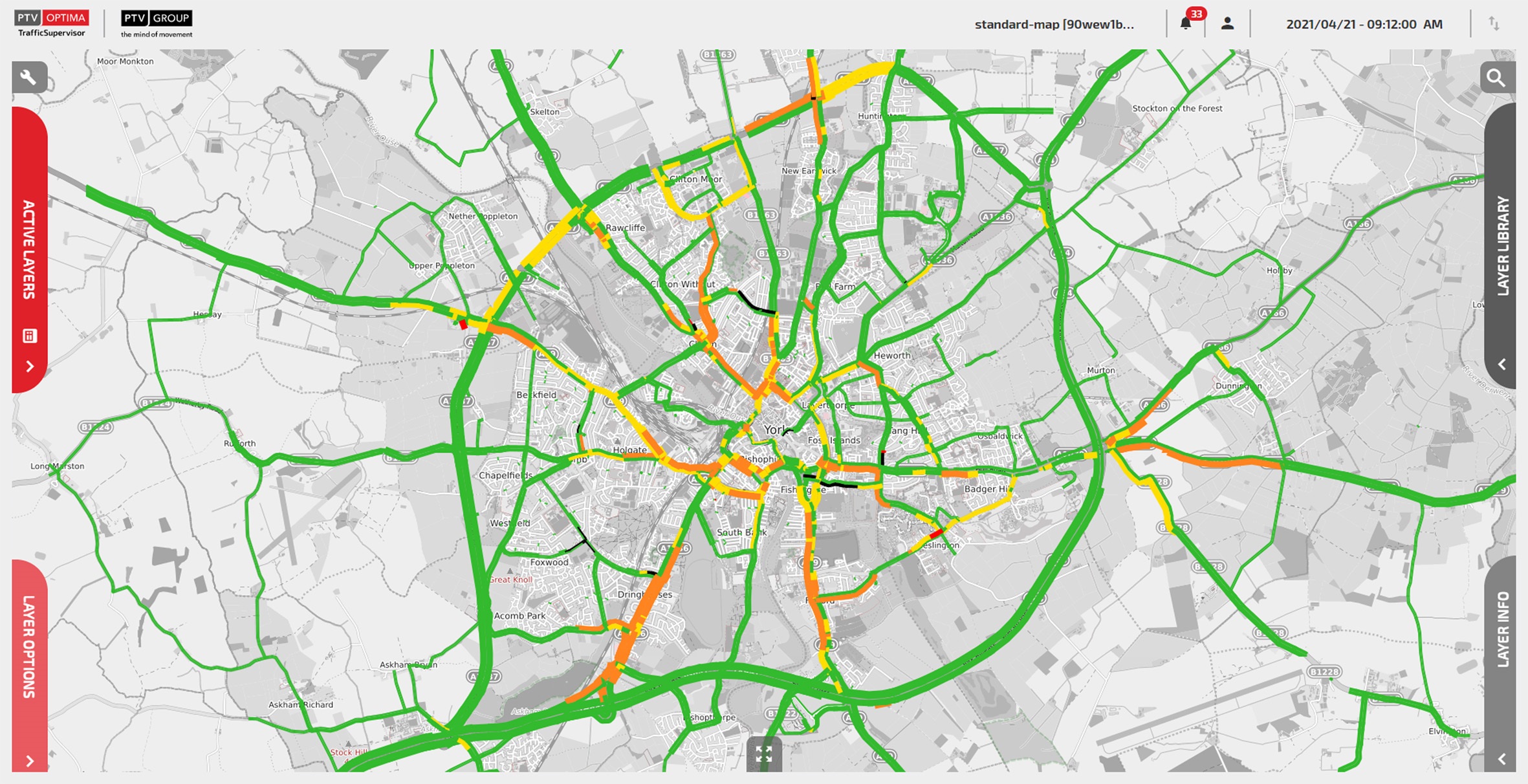
PTV Group, part of Umovity, says it has scaled up the use of its real-time traffic management software PTV Optima in the UK city of York.
Originally implemented for specific junctions in the city, a before-and-after comparison has found improvements to journey times of up to 8% in the peaks as well as "significant reduction to the variation of journey times across the day".
The firm says Optima uses live data, fast computer processing and modelling technology "to predict how traffic will look on the York network in a rolling 15-minute future horizon, providing an estimation of what is happening on the road in real time".
Based on that, it predicts the most effective traffic signal strategy, allowing network managers in York's traffic control room to alter timings to prevent congestion, proactively manage demand and reduce idling time and, therefore, cut emissions.
“The model is continually updating itself, ingesting real-time data and reworking its predictions to react to changing conditions, alerting traffic managers to abnormal incidents and giving quantitative advice on possible mitigation strategies," explains PTV UK technical director Michael Oliver.
PTV Optima has been used in many urban areas, including the Italian cities of Rome and Turin, Strasbourg (France) and Lublin (Poland).
PTV says that in Taichung (Taiwan) and Vienna (Austria) this has led to a 10-50% reduction in travel times and has cut delays at junctions by up to 60%, meaning fewer vehicle stops and up to 15% fewer emissions.











